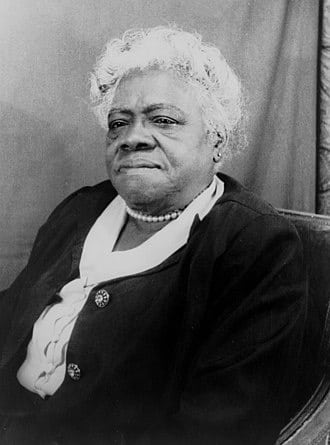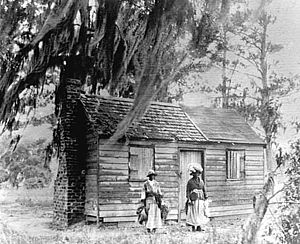First Lady of the Struggle

Some historical figures seemed to have figured out early in life what their purpose on this earth was meant to be. And then they pursued that purpose with dogged determination. Mary McLeod Bethune was one of these people. Not deterred by the social circumstances or lack of money or being told no, Mary plowed ahead to make the world a better place for Black and White citizens alike.
Born in 1875 to former slaves in Mayesville, South Carolina, Mary made her mark in her home state, her adopted state of Florida, and with a powerful presence in Washington, DC. She got her start as an educator because of a childhood encounter with a White child and a book. While delivering laundry with her mother to a White household, she picked up a book with fascination but was told that books weren’t for her because she couldn’t read. That was the motivation Mary needed to set herself on a course of educating herself and many other Black children.
After moving to Florida, she opened up a schoolhouse, renting a building for $11/month and fundraising with bake sales. Mary proceeded to become an expert fundraiser, obtaining donations from names like Proctor & Gamble, Oldsmobile Motor Company, and John D. Rockefeller. When one of her students could not be properly cared for at the local White hospital, she soon opened a small hospital with six beds to accommodate the local Black community and served countless residents during the 1918 influenza pandemic.
Mary was active in the Women’s Suffrage Movement. Once the 14th Amendment was passed, giving women the right to vote, she soon engaged in helping to fundraise to cover the poll tax often imposed on Black citizens. She put her organizing skills to work and formed the National Association of Colored Women and worked to register Black voters. Booker T. Washington recognized her efforts by naming her the “First Lady of the Struggle.”

As Mary’s prominence blossomed, she was noticed by President Roosevelt and First Lady Eleanor. Her work with the National Youth Administration enabled her to raise funds for putting the first Black pilots through training in advance of World War II.
At the Southern Conference on Human Affairs (1938) held in Birmingham, AL, Eleanor Roosevelt asked to sit next to Mary despite the local segregation laws. There are too many examples of Mary’s involvement in civic projects to name here. Twenty schools around the country have been named in recognition of her leadership as an educator. Stories of her engagement, leadership and wisdom abound in civic organizations, the government, and her community.
One story in particular begins with a White man threatening the students at her school with a rifle. Due to her courageous and loving approach to this man, she won him over and in time he began protecting the students with that same rifle.
Her words, spoken and written, are inspiring. A line from her Last Will and Testament is particularly poignant.
I leave you to love. I leave you to hope. I leave you to the challenge of developing confidence in one another. I leave you a thirst for education. I leave you a respect for the use of power. I leave your faith. I leave you racial dignity. I leave you a desire to live harmoniously with your fellow men. I leave you a responsibility to our young people.
A life well-lived, I would say. I am haunted and inspired by her legacy. Oh, the difference one life can make.



Great timing on this for Black History Month!! I wish everyone would include such inspiring words in their Last Will and Testament! So much more important than monetary things!